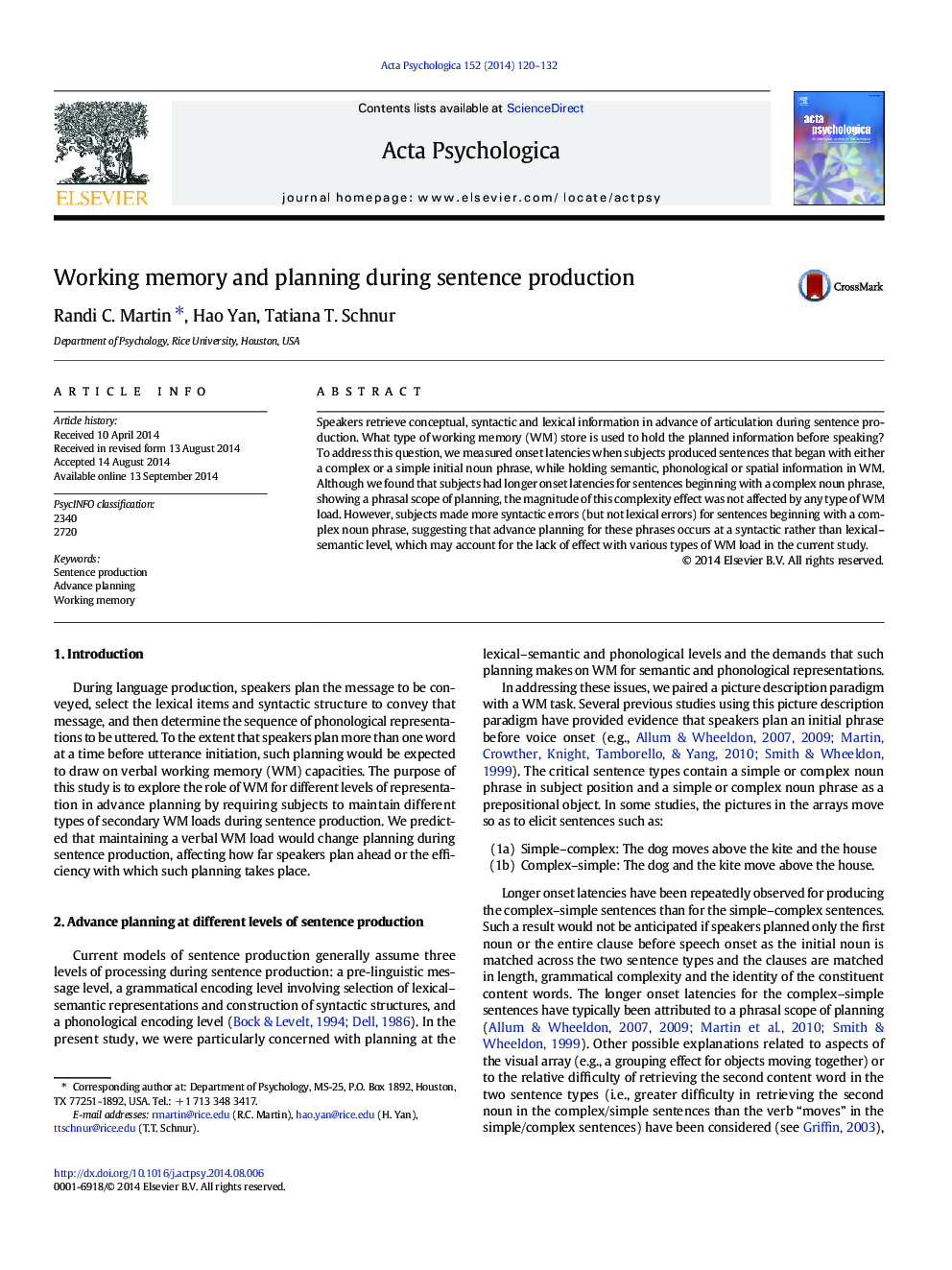| Article ID | Journal | Published Year | Pages | File Type |
|---|---|---|---|---|
| 919793 | Acta Psychologica | 2014 | 13 Pages |
•We examined the effect of concurrent working memory loads on sentence planning.•Semantic/phonological/spatial working memory loads were used.•Speakers employ a phrasal scope of advance planning during sentence production.•Working memory loads do not reduce the planning scope nor increase its difficulty.•Advance planning for phrases may occur at a syntactic rather than lexical level.
Speakers retrieve conceptual, syntactic and lexical information in advance of articulation during sentence production. What type of working memory (WM) store is used to hold the planned information before speaking? To address this question, we measured onset latencies when subjects produced sentences that began with either a complex or a simple initial noun phrase, while holding semantic, phonological or spatial information in WM. Although we found that subjects had longer onset latencies for sentences beginning with a complex noun phrase, showing a phrasal scope of planning, the magnitude of this complexity effect was not affected by any type of WM load. However, subjects made more syntactic errors (but not lexical errors) for sentences beginning with a complex noun phrase, suggesting that advance planning for these phrases occurs at a syntactic rather than lexical–semantic level, which may account for the lack of effect with various types of WM load in the current study.
